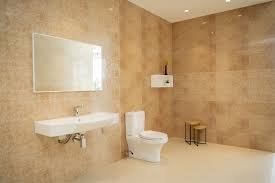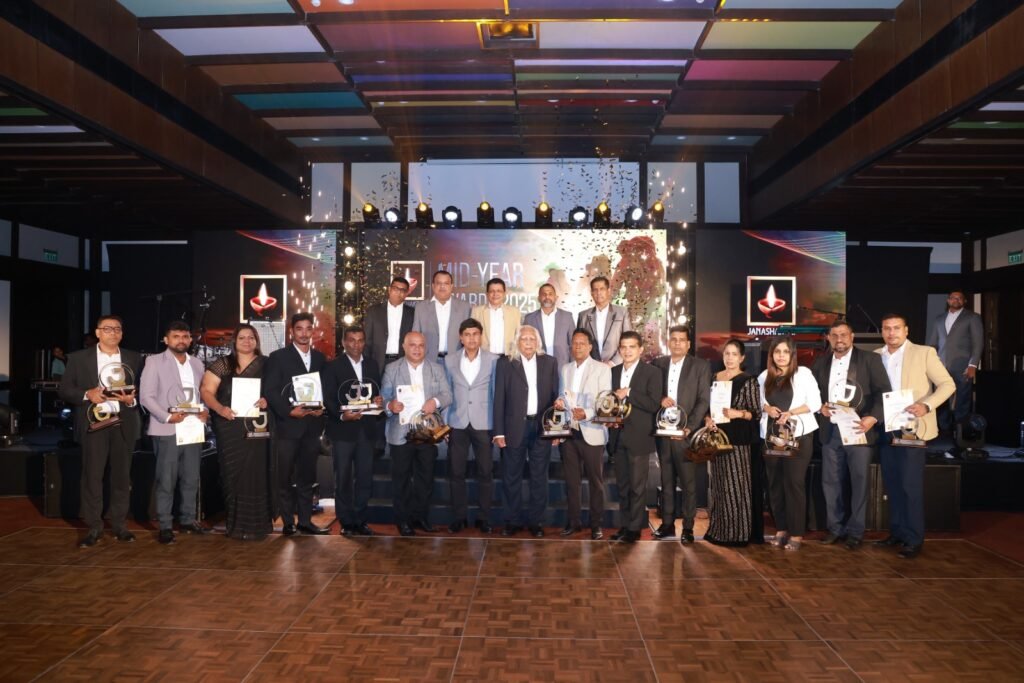Local tile and bathware industry urges stronger trade regulations
Sri Lanka’s tile and bathware industry has called for urgent action to safeguard the future of domestic manufacturing, ensure fair market conditions, and protect the country’s economic interests. The ‘Local Tile and Bathware Initiative’ emphasizes that their stance is not against imports but against unethical practices that deprive the nation of significant tax revenue and undermine quality and competition.

The local tile and bathware industry, encompassing four major tile manufacturers and eight bathware manufacturers, has invested over Rs. 90 billion into domestic production. Annually, the industry contributes more than Rs. 14 billion in direct taxes and employs over 5,200 employees, with 2,000+ more engaged indirectly through suppliers, distributors, and retailers. The contribution to supplier payments exceeds Rs.33 billion and the employee payments are over Rs. 7bn per annum.
With over 80% local value addition rate, the industry is a cornerstone of Sri Lanka’s construction sector. It is in-fact one of the few industries in Sri Lanka that has the capacity to be self-sufficient, offering a globally recognized product range at varied price points. However, it is currently at risk of complete closure.
Unfair Practices & Tax Evasion by Importers
Industry leaders have raised concerns about tax evasion by some importers, who exploit loopholes to gain an unfair advantage. Many avoid VAT payments by registering multiple small companies to remain below the Rs. 60 million revenue thresholds. Importers often pay VAT on the lower import value instead of the final sales value, creating a distorted playing field.
Additionally, under-declaration of import values results in significant tax revenue losses for the government. The initiative calls on the government to mandate VAT registration for all importers, ensure VAT is paid on actual sales values in advance, and enforce proper income tax compliance to level the competitive field.
Evidence of Dumping – A 12-Year Price Stagnation & a Call for Adjusted Tariffs to Reflect Exchange Rate Changes
Considering the significant inflationary pressures and rising production costs globally, it is implausible that import prices for tiles and bathware have remained unchanged for over 12 years. However, as per the declared values locally, this apparent consistency suggests deliberate under-valuation, raising concerns about the accuracy of these declarations and their impact on fair trade.
Current customs declaration values—USD 3.5 per square meter for tiles and USD 35 CIF for a four-piece bathware set—no longer reflect global market realities. The last revision, in 2021, was based on an exchange rate of Rs. 190 per USD, while today’s rate exceeds Rs. 300 per USD. The industry urges the government to revise minimum customs declaration values to align with current market conditions and implement anti-dumping levies to counter unfair foreign competition.
Consumer Protection: Addressing Quality Concerns in Imported Products
Another pressing issue is the lack of stringent quality verification for imported tiles and bathware by the Sri Lanka Standards Institution (SLSI). Substandard imports often flood the market at artificially low prices, misleading consumers and resulting in higher long-term costs due to poor durability. To address this, the initiative calls for enhanced SLSI verification processes to ensure only high-quality imports enter the market and increased consumer awareness of the rigorous quality standards upheld by local manufacturers.
Global Trade Protection Measures: Sri Lanka Lagging Behind
Many countries, including India, China, Saudi Arabia, GCC nations, and the European Union, have implemented anti-dumping measures to protect their tile and bathware industries. Sri Lanka remains one of the few without such protective policies, leaving local manufacturers vulnerable to unethical trade practices.
‘The Local Tile and Bathware Initiative’ urges the government to revise customs declaration values and enforce updated tariffs, introduce anti-dumping levies on imported products, strengthen VAT and income tax compliance among importers, and enhance quality verification processes for imports. With strategic policy support, Sri Lanka’s tile and bathware industry can continue producing world-class products, reduce dependency on imports, and contribute significantly to the nation’s economic growth. Without immediate action, however, the long-term sustainability of the sector is at risk.
‘The Local Tile and Bathware Initiative’ represents Sri Lanka’s leading manufacturers advocating for fair trade policies and sustainable industry growth. While supporting ethical imports that complement the market, the initiative opposes unfair practices that undermine local businesses, tax revenues, and consumer protection.






